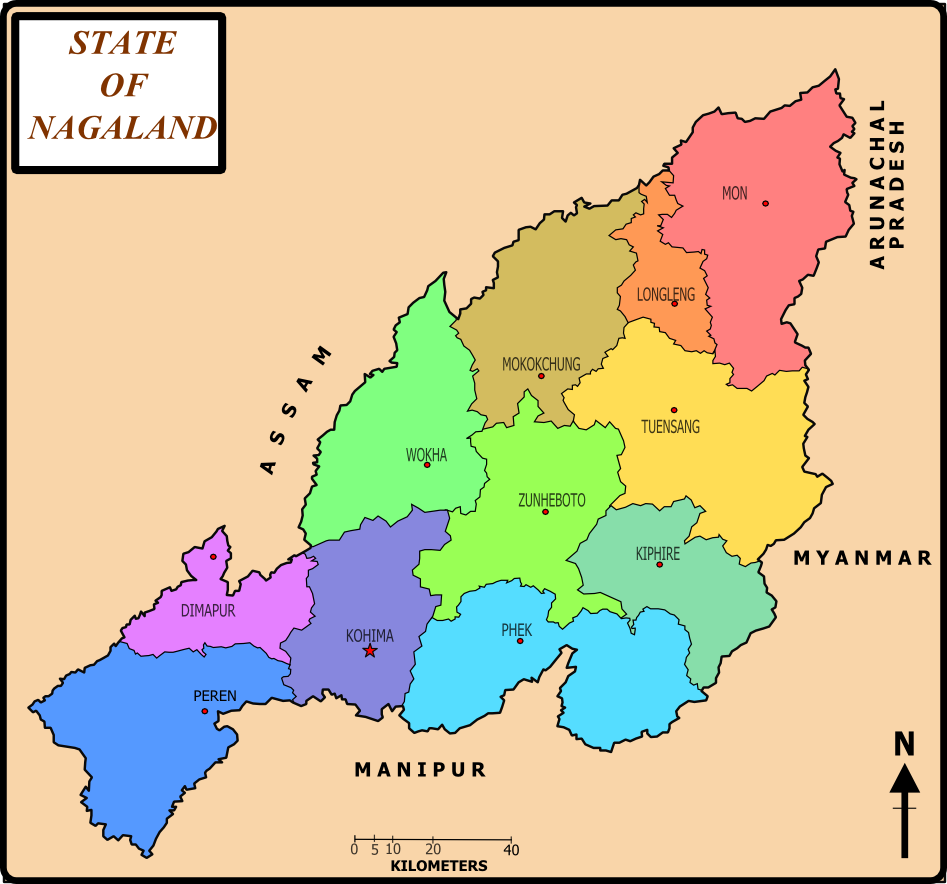Nagaland
The land of festivals
State Facts
Area: 16579 Sq. km
Population (2011): 19,80,602
Literacy: 80.11%
Capital: Kohima

Major crops and resources for economic upliftment
The state has considerable resources of natural minerals, petroleum and hydropower. It has unexploited reserves of around 600 million metric tonnes (MT) of crude oil and more than 20 MT of hydrocarbon. Moreover, the state has 315 MT of coal reserves and 1,038 MT of limestone reserves. Nagaland’s estimated hydropower generation potential is 1,574 megawatt (MW), while the state has a total installed power generation capacity of 154.87 MW. The economy of the Nagaland is based mostly on agriculture. The agro-climatic conditions in Nagaland provide commercial opportunities for floriculture and horticulture. The state has 650 indigenous species of medicinal and aromatic plants. The state is estimated to have the potential to produce 15,000 MT of honey and 100 MT of wax, which together could generate around US$ 100 million annually. Moreover, the production of honey during 2016-17 was recorded to be 0.45 thousand tones. Nagaland has basically an agricultural economy. Over 70% of the population is dependent on agriculture. The main crops are rice, millet, maize and pulses. Cash crops like sugarcane and potato are also becoming popular. Coffee, cardamom and tea are grown as plantation crops in Nagaland. Rice is the dominant crop and also the staple diet of the people. Of the gross cropped area under food grains, rice accounts for about 84.4%. Oil seeds are also an important crop. It includes Rapeseed, mustard etc. Coffee cardamom and tea are grown as plantation crops in Nagaland. Principal crops are Arums, yams, millet, maize, potatoes and sugarcane. Vegetable crops are melon, cucumbers, spinach leaf, mustard, onion, chillies, carrots, tomatoes, brinjal etc. The two methods of cultivation among the Naga tribes are jhuming and terrace cultivation. The area under jhum cultivation is about 87.339 hectares and under terraced cultivation is about 62,091 hectares.




© Copyright CSIR-NEIST, Jorhat-6, Assam. All Rights Reserved